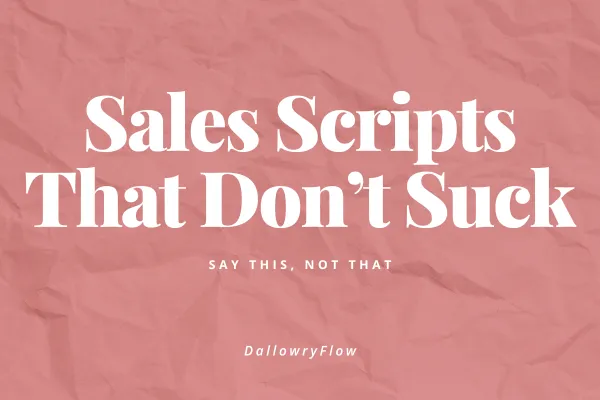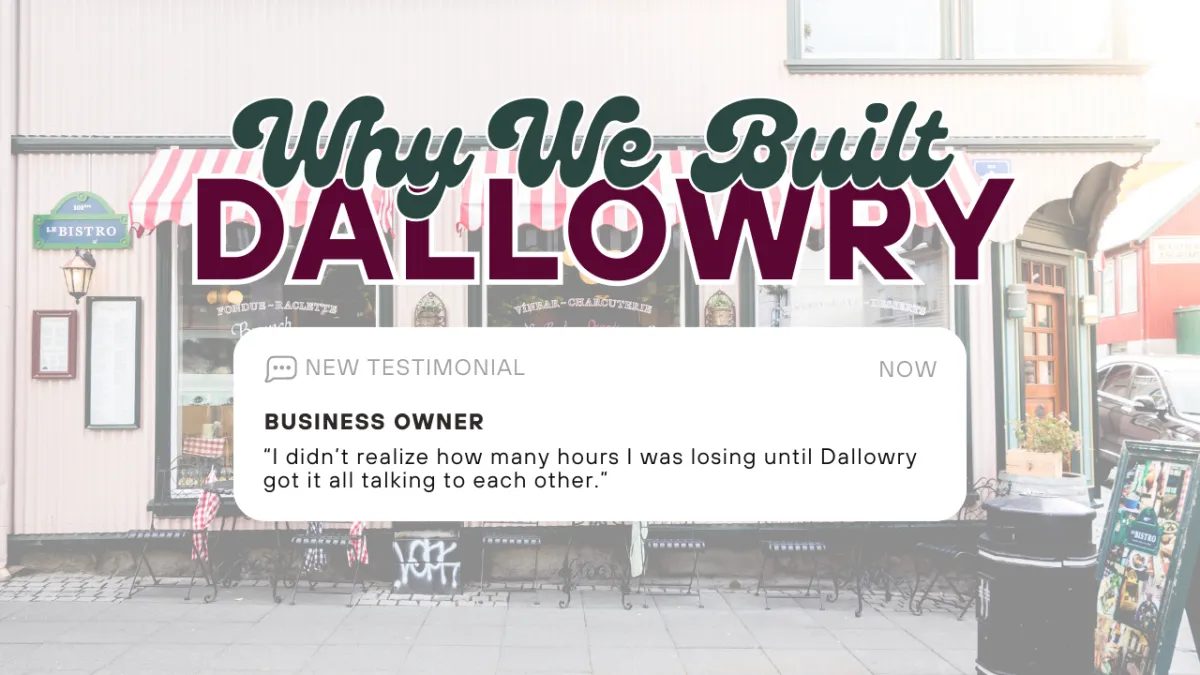TOOLS, Tutorials,
and TRUTH BOMBS
We DON'T gate-keep the good stuff.
Here you’ll find real-world systems, smart strategies, and practical tutorials to help you automate smarter, market better, and scale faster—without losing your mind in the process.
From backend workflows to business mindset, this is the place to come when you want answers that actually move the needle.
EVERYTHING
we've learned SHARED

Sales Scripts That Don’t Suck: Say This, Not That
Sales can feel tricky, especially if you’re not used to doing it. You don’t want to sound too pushy. You don’t want to come across as fake. You don't want to sound incompetent by being too passive. And you definitely don’t want to feel like you’re bothering people. But here’s the truth: if you believe in your product or service, then sharing it isn’t annoying—it’s helping. What most people need is a better way to talk about what they offer. That’s where a good sales script comes in.
Now, when we say “sales script,” we don’t mean a stiff, robotic speech. We mean a guide. Something simple that helps you stay clear, kind, and confident when you're talking to a potential customer. It helps you say the right thing, avoid the wrong thing, and stay focused on serving—not selling.
So let’s talk about how to build a sales script that doesn’t suck. One that feels good to use and actually works.
The first key to a good sales conversation is starting with the person in front of you—not your product. Too many sales pitches begin by listing all the great things a product does. But the truth is, people care more about their own problems than your product features. So instead of starting with “Let me tell you about our offer,” try starting with a question like, “What’s been the hardest part about [their situation] lately?” or “What would it look like if this problem was solved for good?” This invites them into the conversation and helps you learn what really matters to them. You can't offer them a solution if you don't fully understand the problem they're facing.
Once you understand their pain points or desires, then you can start sharing what you do—but keep it focused on how it helps them. Instead of saying, “We’ve been in business for 10 years and we do XYZ,” try, “We help people like you get [desired result] without the stress of [common struggle].” It’s a simple shift, but it makes a big difference. You’re showing them that you see their need—and that you’ve helped others just like them.
Another common mistake in sales is using phrases that feel too rehearsed or too salesy. Words like “limited-time offer,” “act now,” or “guaranteed results” can make people tune out. Instead, speak like a real person. Imagine you’re talking to a friend. Would you say, “This revolutionary package will change your life forever”? Probably not. You’d say something like, “I really think this could help. Want me to walk you through it?”
Here’s another phrase to avoid: “Does that make sense?” While it might seem harmless, it can accidentally make someone feel like they’re not smart. A better option is to say, “How does that sound so far?” or “Is this feeling like what you were hoping for?” These still check for understanding, but they feel more respectful.
Now let’s talk about handling questions or objections. Someone might say, “This sounds great, but I’m not sure I can afford it.” Instead of panicking or dropping the price right away, try responding with curiosity. You could say, “Totally fair. Can I ask what you were expecting or hoping to spend?” This keeps the conversation going and helps you understand what’s really going on. Sometimes it’s a money issue. Other times, they just need a little more clarity.
When someone hesitates, it doesn’t mean they’re not interested. It usually means they need more information—or more trust. So the goal isn’t to “close the sale” right away. It’s to build a relationship. Share examples. Tell stories. Offer to follow up. Say things like, “Would it be helpful if I sent over a quick summary so you can think it over?” or “Can I check in with you next week after you’ve had some time?” These small actions show that you care about their decision—not just your sale.
The best salespeople aren’t the ones with the slickest pitch. They’re the ones who listen more than they talk. Who ask good questions. Who speak clearly, simply, and with kindness. So instead of memorizing a long script, focus on a few key ideas:
First, start by connecting. Make it about them, not you. Ask simple questions that help them open up. Second, speak in plain language. Don’t dress it up. Just say what you do and how it helps. Third, handle hesitations with curiosity and calm. And finally, follow up with care, not pressure.
If it helps, you can write down a few go-to lines that feel good to you. These might include how you introduce yourself, how you explain your service, and how you follow up. But keep them flexible. You’re not reading a script. You’re having a conversation.
And remember—if you believe in your offer, you’re not bothering people by sharing it. You’re giving them a chance to get the help they’ve been looking for.
If you’re looking for an easy way to manage leads, follow-ups, and keep your sales flow organized, DallowryFlow can help. Our system is built to support small business owners who want to stay consistent without feeling overwhelmed. From automated responses to smart reminders, you’ll stay on top of your sales conversations without dropping the ball. You don’t have to sell harder—you just need the right system behind you.
Sales don’t have to feel slimy. They can feel like service. With the right script—and a little practice—you’ll get better every time. Start with one small shift. Say this, not that. Listen more than you speak. And lead with help, not hype.
You’re better at this than you think.




